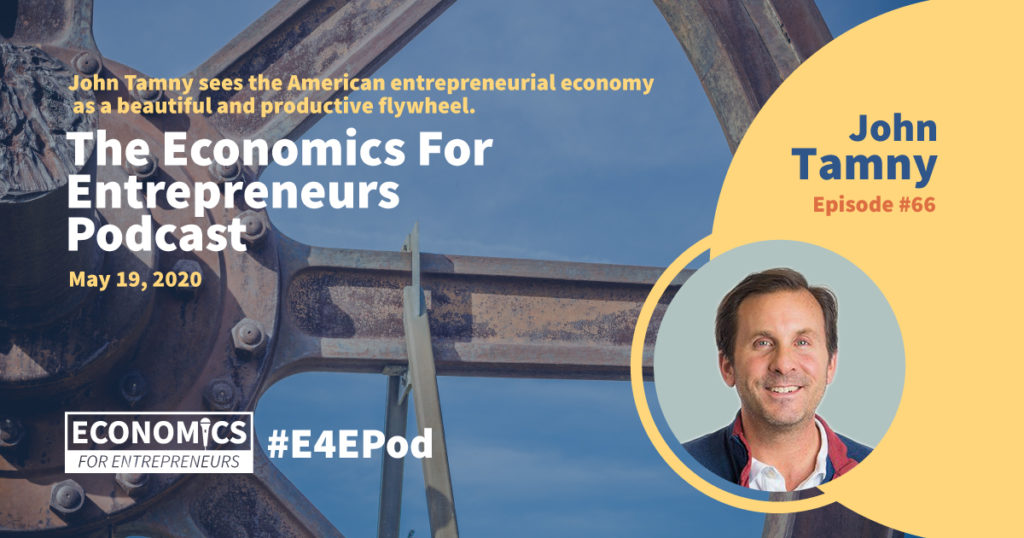The Genius Of The Consumer

Entrepreneurship is the intentional pursuit of value. This pursuit fuels the engine of economic growth. The entrepreneurs who achieve the realization of value become folk heroes, and the great firms that create value at scale – Apple, Microsoft, Amazon, Facebook, Google – are stock market heroes.
All of this is acceptable wisdom. However, it’s the wisdom of outcomes, of recording the score after the play has been completed. Who drew up the play? Don’t we concede some genius to the coach and the offensive co-ordinator as well as the quarterback and the wide receiver?
Who Is Pursuing Value?
In order to understand cause and effect, we have to start at the input, not the outcome. Who is actually pursuing value? How did the entrepreneur – or Apple – know that something new was needed? That some improvement was required to retain the role of stock market hero?
Henry Ford is often quoted as saying (although he probably didn’t), “If I had asked people what they wanted, they would have said faster horses.” The implication is that he placed no faith in the identification of consumer needs. His preferred method was invention (coming up with something new through his own genius) followed by innovation (translating the invention into something that could be produced, and then sold on the market).
In fact, Ford’s attitude, according to Harvard Business Review, “had a very costly and negative impact on the Ford Motor Company’s investors, employees, and customers”. Because it turned out that, once consumers had Model T’s, they quickly decided that what they wanted was better cars. General Motors developed a response in the form of their “A Car for Every Purse and Purpose,” strategy which aimed to produce cars for distinct market segments aided by installment selling, used car trade-ins, closed car models, and annual model changes. The Ford Motor Company was quickly relegated to a minor, small-share role in the American automobile market.
Think of this as the genius of the consumer. One minute, they don’t have cars. Next minute they are demanding not only better cars, but also better ways to buy them, better aesthetics, greater variety and frequent upgrades. Such boldness, such expansive thinking, such imagination! Edison brought them lightbulbs, and they imagined a world of devices attached to an electricity grid providing on-call productivity services of all kinds. Steve Jobs brought them the iPhone and they interconnected themselves to each other and to sources of knowledge and to global supply chains.
The double genius of the consumer.
What is this genius? It is twofold.
First, it is consumers who actually create value. How so? Because they are the ones pursuing it. Entrepreneurs and the innovators put resources – such as cars and refined gasoline and silicon chips and touchscreens and internet connections – into consumers’ hands, and then the consumers roar into action, their creativity unleashed by new affordances. They try to create as much value as they can with the new resources. They drive to work and drive to school and drive across America and put grocery and tools in the backs of their cars (Hey, Henry! Make me a pick-up truck!), and maybe sleep in the car (Hey, Henry! Make me an RV!) and maybe make music in the car by singing and whistling to themselves or to their kids in the back seat (Hey, Henry! Where is the radio?), and maybe find themselves wishing they could call home to say when they’ll be home for dinner (Hey, Henry! How about a carphone?). Value occurs entirely in the consumer’s domain (or the customer’s if you are in B2B). Value is a feeling of satisfaction in the consumer’s mind.
Which brings us to the second aspect of the consumer’s genius. It’s their dissatisfaction. Henry Ford wanted to accuse them of lacking imagination. He got it all wrong. Anyone can imagine the future (flying cars for example). Not many can get it right. Consumers don’t waste their time on such high error rate activities. They concentrate on a subject where they are always right: their own feelings of dissatisfaction. “Henry, we get wet driving your car in the rain!” “Henry, it’s really hard to change the tires.” “Henry, I can’t afford to pay you that amount of money all at once. Give me some time, won’t you?” “You said it only comes in black, but blue is my favorite color.” “Henry, your Model T looks the same this year as it did last year.” “Henry, can you speed this thing up?” “Henry, I need to work remotely. Can you make my F150 like a mobile office?”
The consumer has big dreams.
How genius is this? Dissatisfaction indicates that the consumer is able to dream bigger than the producer. Every new invention that becomes an innovation and is introduced to the market is immediately scrutinized under the lens of dissatisfaction, critiqued and criticized. No matter how many millions or billions of development dollars went into it, no matter how many Ph.D. engineers and Harvard MBA’s brought it to market, it can not survive the consumer’s examination unimproved. Because the consumer has big dreams.
The genius of the consumer outstrips that of the entrepreneur. Economists see the entrepreneurial process as one of trial and error, with the emphasis on error – a lot of mistakes before arriving (with the help of consumer feedback, of course) at a salable proposition, which is defined as one that generates less dissatisfaction than some alternative on which the consumer could spend their money.
Entrepreneurs are still heroes of course. If they weren’t willing to invest time, money and ego into the process of trying to please consumers, despite all the rejections, then there would be no progress. We might still be driving Model T’s, because no entrepreneur was willing to suffer the wrath of dissatisfied customers. We love our entrepreneurs. And we especially love those with more empathy – more ability to listen to consumers’ complaints to stimulate their imaginations for future betterment.
But let’s not err in identifying the locus of genius in this market process. Let’s help consumers achieve their dreams (before those of the entrepreneur).







Responses